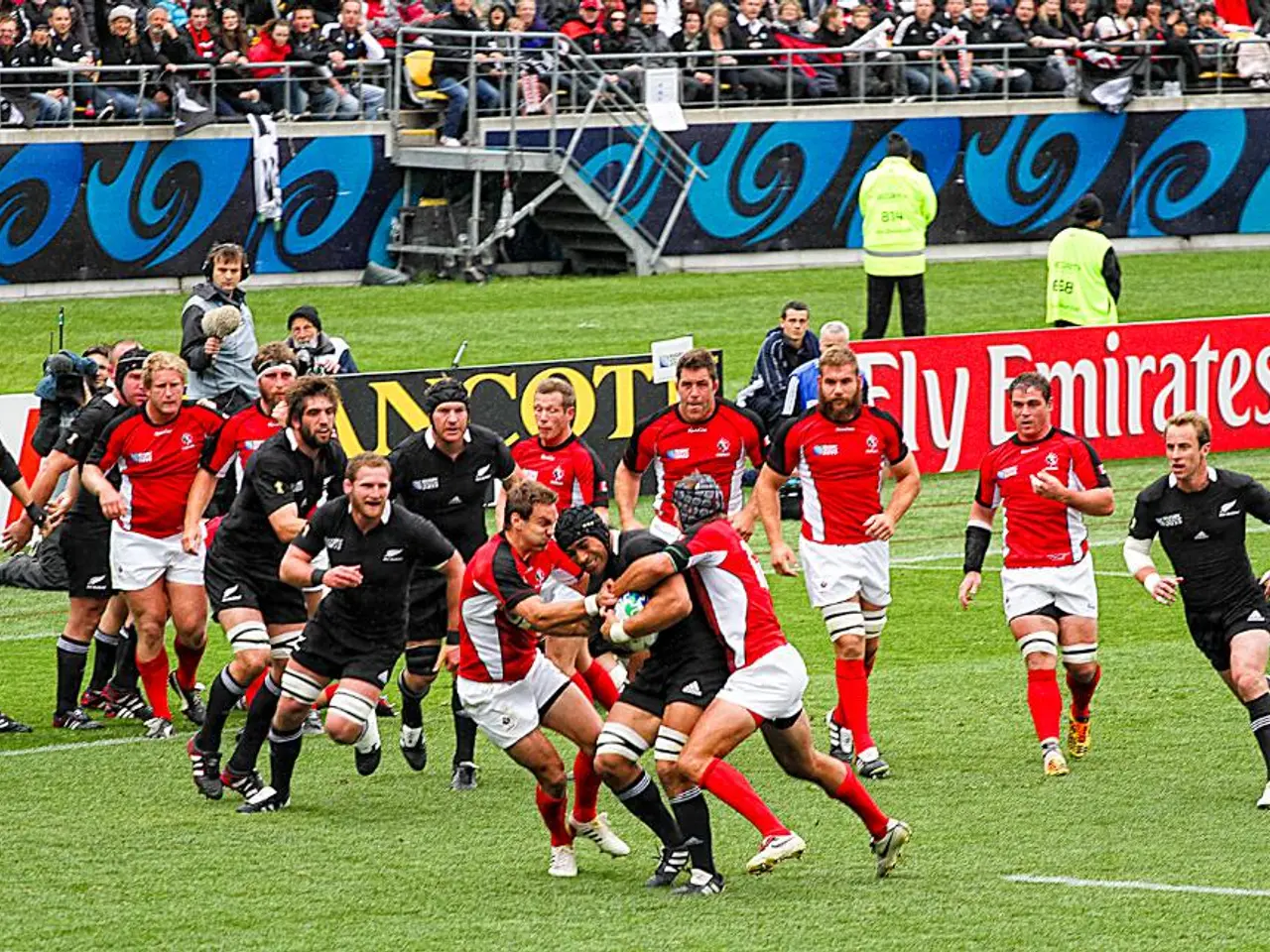Professional mixed martial arts organization, UFC, tightens its regulations by banning its fighters from betting on any of their events.
In the rapidly evolving landscape of sports betting in the United States, the Ultimate Fighting Championship (UFC) has implemented a ban on its fighters, coaches, managers, and staff from wagering on all UFC fights. This regulation aims to preserve the integrity of the sport and prevent conflicts of interest or potential match-fixing.
The ban is part of a broader trend in the regulated sports betting industry, which has grown significantly since the 2018 Supreme Court decision that allowed states to legalize sports betting. Regulatory bodies and sports leagues have implemented betting restrictions on insiders to avoid compromising competitive integrity and to prevent any potential manipulation of outcomes.
Justin Jaynes, a lightweight UFC fighter, recently found himself on the wrong side of this rule when he wagered $25,000, the worth of his entire purse, on himself to beat Charles Rosa in UFC Vegas30 last year. Jaynes lost in a split decision, adding an unexpected twist to the story.
The UFC's ban is not a new concept in the world of sports. Similar policies are in place in major sports leagues, aligning with regulatory norms designed to protect the sport’s reputation amid the widespread legalization and popularity of sports betting.
MMA, with its constant availability of bouts every weekend, has become a popular betting option. States like Colorado have reported close to $75 million handle for MMA wagering since its launch in May 2020. In Illinois, the handle for MMA and boxing wagers combined totaled close to $71.4 million for 2022 and more than $192 million overall. South Dakota reported a handle of $115,655 for MMA fights in the first eight months of the year, representing 2.9% of the overall handle.
Interestingly, the UFC Athlete Conduct Policy allows fighters to be paid by betting sponsors for offering their picks on fights, as long as it complies with applicable law. This exception underscores the UFC's commitment to maintaining a balance between the growing sports betting industry and the need to preserve the integrity of the sport.
MMA reporter Ariel Helwani first publicized the change to the UFC's Athlete Conduct Policy, with UFC Chief Business Officer Hunter Campbell announcing the change. As the sports betting market continues to expand, it is likely that more sports organizations will follow suit in implementing similar regulations to ensure fairness and transparency in sports competitions.
[1] Regulation Focus: UFC's New Betting Policy, [URL] [2] UFC Bans Wagering on All Fights, [URL] [3] Sports Betting Regulation in the US: A Comprehensive Overview, [URL] [4] The Impact of Sports Betting on the Integrity of Sports, [URL]
- The ban on UFC fighters, coaches, managers, and staff from engaging in sports betting, announced by UFC Chief Business Officer Hunter Campbell, is part of a broader trend in the regulated sports betting industry, aiming to preserve the integrity of sports and prevent conflicts of interest or potential match-fixing.
- Despite the UFC's ban on wagering on all fights, the growth of the sports betting market, as seen in states like Colorado, Illinois, and South Dakota, has made MMA a popular betting option, with significant handle amounts reported for MMA wagering.








